There’s never been a better time to consider purchasing an electric car, as the market offers an unprecedented range of options. The EV market, which initially consisted of a small number of niche vehicles, is now the fastest growing sector in the automotive industry. With the introduction of the Biden/Harris Administration’s nationwide plan to establish 500,000 EV chargers and new stringent emissions standards from the EPA, we are quickly approaching a turning point where the adoption and expansion of EVs will surge. Over twenty-five car manufacturers currently provide over forty EV models that offer a minimum of 200 miles of range, unique technological features, and, increasingly, performance that exceeds similar gasoline-fueled vehicles.
However, it’s not just a matter of having a greater selection of EVs. There is now a broad spectrum of ranges, prices, performance capabilities, and luxury features to choose from, which empowers potential buyers to customize their selection to meet their unique requirements and financial limitations. Whether your aim is to obtain a simple, eco-friendly means of transportation for daily commuting or a cutting-edge, high-tech vehicle for extended road trips, there is an EV that is perfectly suited for your needs.
We have tested almost all of the electric vehicles available in the US market and therefore, we possess firm views on what is excellent and what is not up to par. To commence, we will provide you with our suggestions and subsequently, give a few pointers for those who are purchasing their initial EV.
The top-performing electric cars available currently.
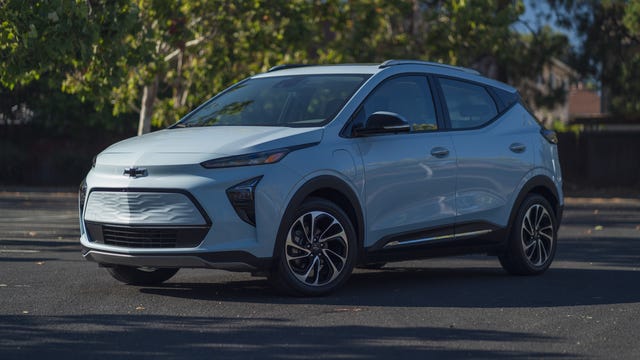
The 2023 Chevrolet Bolt EUV is considered the best affordable electric car. It is essentially an improved and larger version of Chevy’s Bolt EV model. Despite its compact size and ease of parking in the city, it offers more interior space compared to its competitors like the Hyundai Kona Electric and Nissan Leaf. Although its 65-kWh battery allows for a range of 247 miles, which is lower than some of the other top electric cars, it is still suitable for commuting, running errands, or regional travel. Additionally, the Bolt EUV’s smaller battery reduces its reliance on ultrafast charging and keeps its price within a reasonable range.
With a starting price of only $28,795, this vehicle is considered as one of the most reasonably priced electric cars available in the market today. However, its days are numbered as production will cease at the end of 2023 to make way for the production of more costly electric pickup trucks. There has been no announcement regarding a successor to the Bolt EV or EUV, which means that next year’s most economical electric car might be considerably more costly. You may check out our Chevrolet Bolt EUV review.
Look on TrueCar.
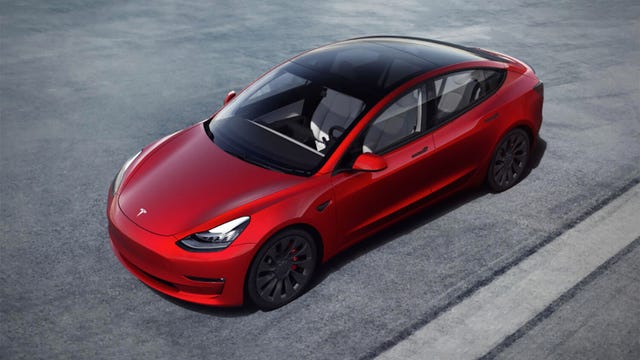
Tesla
Tesla Model 3 for 2023
The Top-rated Small Electric Car
It is hardly a surprise to see the Tesla Model 3 ranking high on the list of the Best Electric Cars. This compact electric sedan boasts an impressive range of up to 315 miles between charges in its Performance configuration, making it one of the the top performers in its class. The Model 3 also delivers incredibly fast acceleration while providing access to Tesla’s dependable Supercharger public charging network. Add to this the ability to upgrade the car’s features through software updates and it’s easy to understand why the Model 3 is the second best-selling EV in the U.S, with the first place taken by Tesla’s Model Y. Read our review for more on the Tesla Model 3.
Visit Tesla
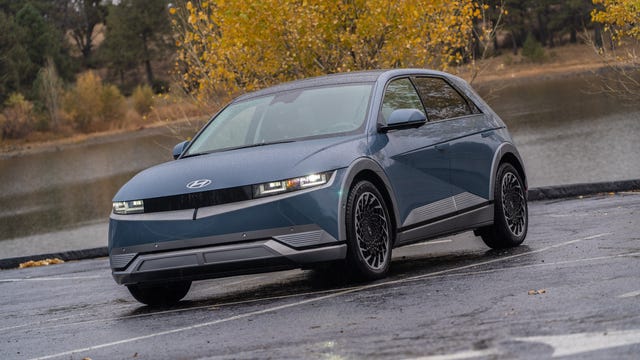
2023 Hyundai Ioniq 5
The finest choice for a midsize electric car
Hyundai Ioniq 5 has achieved a perfect harmony of performance, range, and affordability, making it the most balanced option on this list. This futuristic vehicle has a distinctive design and can travel for up to 303 miles with a single charge when equipped with the Long Range battery pack.
The Ioniq 5 appears small in pictures and at a distance, but it boasts a spacious car interior thanks to Hyundai’s E-GMP platform exclusive for EVs. Our experience with the Ioniq 5 was pleasant as it offers ample range, appealing aesthetics, and comfortable driving. It comes with four USB ports and a sleek sliding central console as standard, along with a digital key. This model features several safety systems, both active and passive, including a head-up display that competes with some luxury cars. Check out our review of the Hyundai Ioniq 5.
Check out TrueCar.
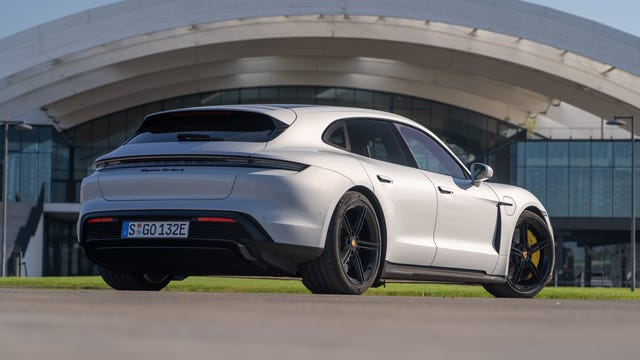
2023 Porsche Taycan named Best Full-Size Electric Car by CNET’s Antuan Goodwin
The Porsche Taycan may come with a hefty price tag, as expected of a Porsche, and falls slightly behind the Tesla Model S in terms of range, however, there is much more to appreciate in an EV than just range. Driving the Taycan provides an entirely different experience, making it the ultimate choice for a full-size EV. Its battery life is more than sufficient for daily driving, and its quality and driving performance are unmatched. Moreover, the Taycan is available in Sport Turismo and Cross Turismo electric sport wagon styles, providing additional versatility and style.
The Taycan GTS by Porsche has an estimated official range of 246 miles, but it can easily surpass that when driven in real-world conditions. Additionally, Porsche’s electric architecture operates at a voltage of 800 volts and charges rapidly, with the ability to charge from 10% to 80% in just 23 minutes at a high-speed charging station. To learn more about the Porsche Taycan, take a look at our review.
Check out TrueCar.
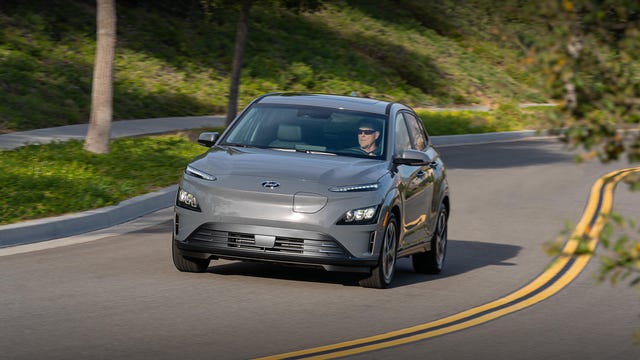
2023 Hyundai Kona Electric
The Kona Electric is considered the best subcompact electric SUV that is often overshadowed by Hyundai Motor Group’s newer electric family members. Apart from a unique front bumper, it is difficult to distinguish the compact EV from the gasoline-powered Kona. However, its approachable starting price of $34,885 before incentives and a range of 258 miles make it an excellent option for those who want an affordable and reliable full-electric ride. Its compact SUV design is ideal for loading cargo, and the dashboard technology satisfies all the right requirements. Moreover, the interior offers high quality without breaking the bank.
The sluggish DC fast charging is the Achilles’ heel of the Hyundai and as a result, we would not recommend the Kona Electric for individuals who plan on taking long road trips. Nevertheless, the Kona’s impressive range and small size make it suitable for city residents who lack the opportunity to charge their vehicle every night and may need to go several days between charges while running errands. Be sure to read our review of the Hyundai Kona Electric.
Visit TrueCar for more information.
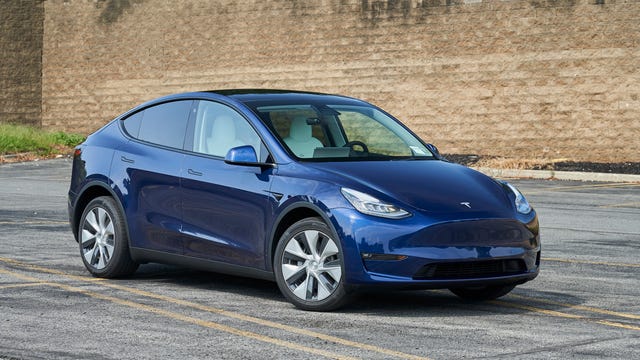
2023 Tesla Model Y
Best Compact Electric SUV
The Tesla Model Y boasts everything the EV fans adore about the Tesla Model 3, but with added cargo space. With taller seating position, additional headroom, and more room for cargo, the Y surpasses the Model 3 in popularity, hence becoming the best-selling electric car in America. Despite being heavier and having a greater aerodynamic profile than the Model 3, the Model Y can travel up to 330 miles per single charge, making it excel among competitors. Check out our long-term Tesla Model Y review for further details.
Visit Tesla
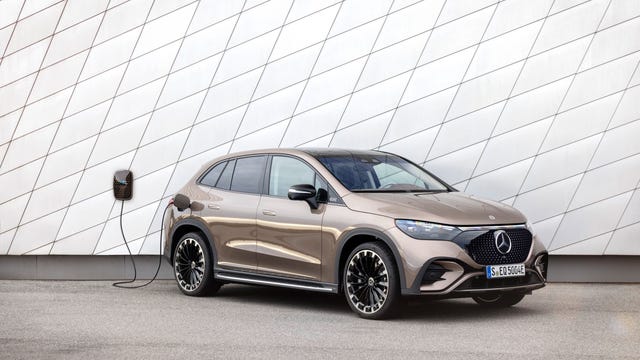
Mercedes-Benz
The 2023 Mercedes-Benz EQS SUV
Best midsize electric SUV
The EQS SUV is the electric SUV iteration of Mercedes-Benz’s flagship EQS electric sedan. The design language of the EV manufacturer fares much better on the SUV’s proportions, making it less bland than the EQS sedan. The interior of the EQS SUV features premium materials and a striking Hyperscreen triple-display infotainment technology suite.
The SUV shares the same electric powertrain choices as the sedan, which pair up to two electric motors with a 108.4-kWh battery, resulting in an impressive output of 536 horsepower and 633 pound-feet of torque. Despite its larger and roomy size, the SUV sacrifices some range, but its exceptional aerodynamics ensure a decent driving range of up to 305 miles on a single charge. Discover additional details about the Mercedes-Benz EQS SUV.
Check out TrueCar.
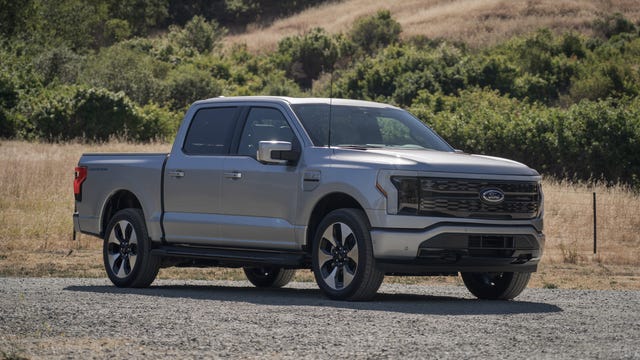
Antuan Goodwin/CNET
2023 Ford F-150 Lightning:
Top-rated electric pickup truck
In my experience, the F-150 Lightning, boasting a range of 320 miles, is easily one of the most impressive full-size pickup trucks out there, regardless of whether or not it’s electric. Thanks to its electric powertrain, the Lightning also boasts other utility-enhancing features like a spacious “frunk”, and a powerful Pro Power Onboard mobile power bank system. However, what really sets the F-150 Lightning apart is how familiar it feels when compared to a traditional Ford F-150.
The F-Series has been America’s top-selling vehicle by a significant margin, and the Lightning doesn’t deviate much from the winning recipe. With the upcoming release of electric pickups from Chevrolet and Ram, tough competition is on the horizon. However, for the time being, Ford sits atop the throne. Take a look at our review of the Ford F-150 Lightning.
Check out TrueCar.
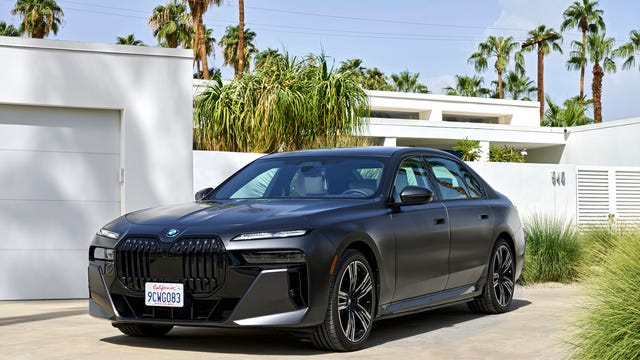
2023 BMW i7 xDrive60
The finest luxury electric vehicle from BMW
The latest i7 sedan from BMW is an exemplar of luxury electric cars, featuring an impressive 536 horsepower and 549 pound-feet of torque, along with an array of advanced technologies and features. This vehicle can travel for up to 324 miles on a single charge, and comes equipped with electric motor tones crafted by composer Hans Zimmer. Additionally, it is one of the first BMWs to offer the new Highway Assistant – capable of providing Level 2 hands-free driving up to speeds of 85 mph.
Within, you’ll discover what might just be the most luxurious interior that BMW has ever created, featuring controls made of crystal, premium-grade leather, and cashmere accents. If you thought the double 12.3-inch and 14.9-inch displays on the dashboard were massive, you’ll be even more amazed by the 31.3-inch 8K BMW Theater Screen that descends from the ceiling to entertain passengers in the back with Amazon Fire TV apps utilizing 5G data. Check out our review of the BMW i7.
Check out TrueCar.
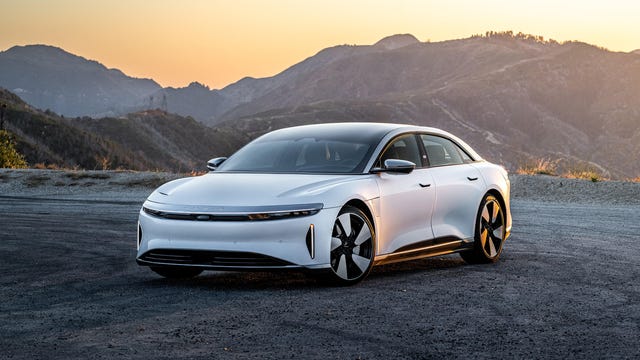
2023 Lucid Air Grand Touring
Longest range electric car
Lucid, an electric vehicle startup based in California, has set a new record for electric car endurance with their Lucid Air Grand Touring which can travel up to 516 miles on a single charge. This incredible feat was achieved by equipping the large sedan with a massive 112-kWh battery pack and utilizing an aerodynamic design that minimizes drag. Additionally, the Air boasts compact electric motors that are incredibly efficient, using only 3.8 kilowatt-hours per mile. On the performance side, the Air is equally impressive, with up to 1,050 horsepower and the ability to go from 0-to-60 mph in just 2.6 seconds.
Naturally, it will come at a price. The Air’s base model is priced at $87,400, while the Grand Touring version comes at a hefty price tag of $138,000… and this isn’t even the priciest configuration. To find out further details about the Lucid Air, visit Lucid Motors.
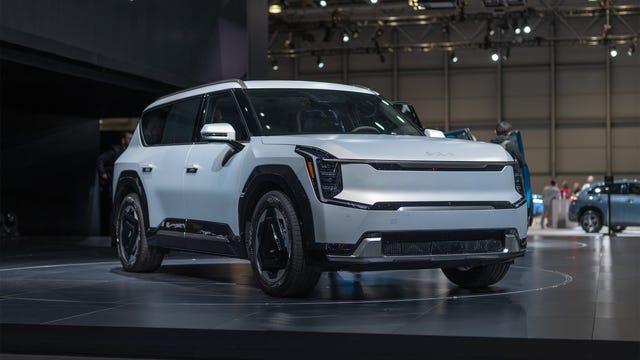
Antuan Goodwin/CNET
2024 Kia EV9: The Most Anticipated EV
Kia’s EV6 is undoubtedly one of the most impressive EVs out there, but its seating capacity is limited to five. On the other hand, the combustion-powered Telluride is one of the hottest three-row SUVs on sale today. Fortunately, Kia will soon unveil the EV9 later this year. The Korean automaker will take advantage of the E-GMP electric vehicle platform that underpins the EV6 and stretch it out to fit a larger SUV body with striking design elements.
We’re particularly thrilled about the reconfigurable interior of the EV9, which offers the versatility to rotate the second row of seats up to 180 degrees for creating a social space with the third row or swivel them outward for effortless loading of car seats. Additionally, the dual-motor GT-Line variant of the EV9 is expected to be swift, churning out a maximum power output of 378 hp and 442 lb.-ft. of torque, thereby accelerating from 0 to 62 mph in merely 6 seconds. Discover more about the Kia EV9.
Take a look at Kia!
Comparison of top electric vehicles for 2023:
Name Max Range (mi.) Starting Price
Best Affordable EV 2023 Chevrolet Bolt EUV 247 $28,795
Best Small EV 2023 Tesla Model 3 315 $43,380
Best Midsize EV 2023 Hyundai Ioniq 5 303 $42,785
Best Large EV 2023 Porsche Taycan 246 $92,550
Best Subcompact Electric SUV 2023 Hyundai Kona Electric 258 $34,885
Best Small Electric SUV 2023 Tesla Model Y 330 $54,380
Best Midsize Electric SUV 2023 Mercedes-Benz EQS SUV 305 $105,550
Best Electric Pickup Truck 2023 Ford F-150 Lightning 320 $66,869
Best Luxury Electric Car 2023 BMW i7 301 $120,295
Longest Range Electric Car 2023 Lucid Air 516 $87,400
EV we’re most anticipating 2024 Kia EV9 TBD TBD
Things to Consider Before Purchasing an EV
Selecting the EV you want to buy is merely the initial phase of transitioning to electric vehicles. Following that, you’re likely to ask queries about the techniques and locations for charging an EV, the timing and situations for servicing it, the overall cost of ownership, and the details about those tax incentives you continue hearing about. These concerns may appear more overwhelming and intricate than deciding on your gleaming new automobile. Luckily, we’re available to provide assistance.
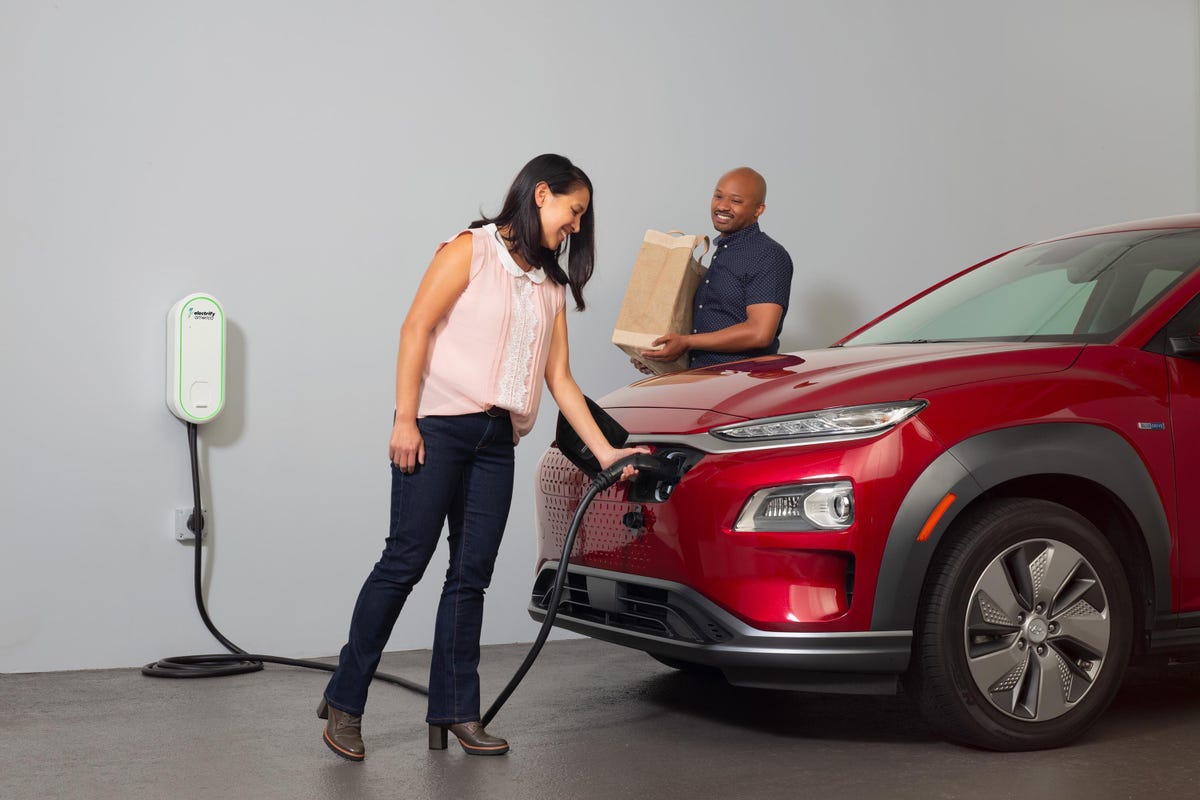
Increase Image Size
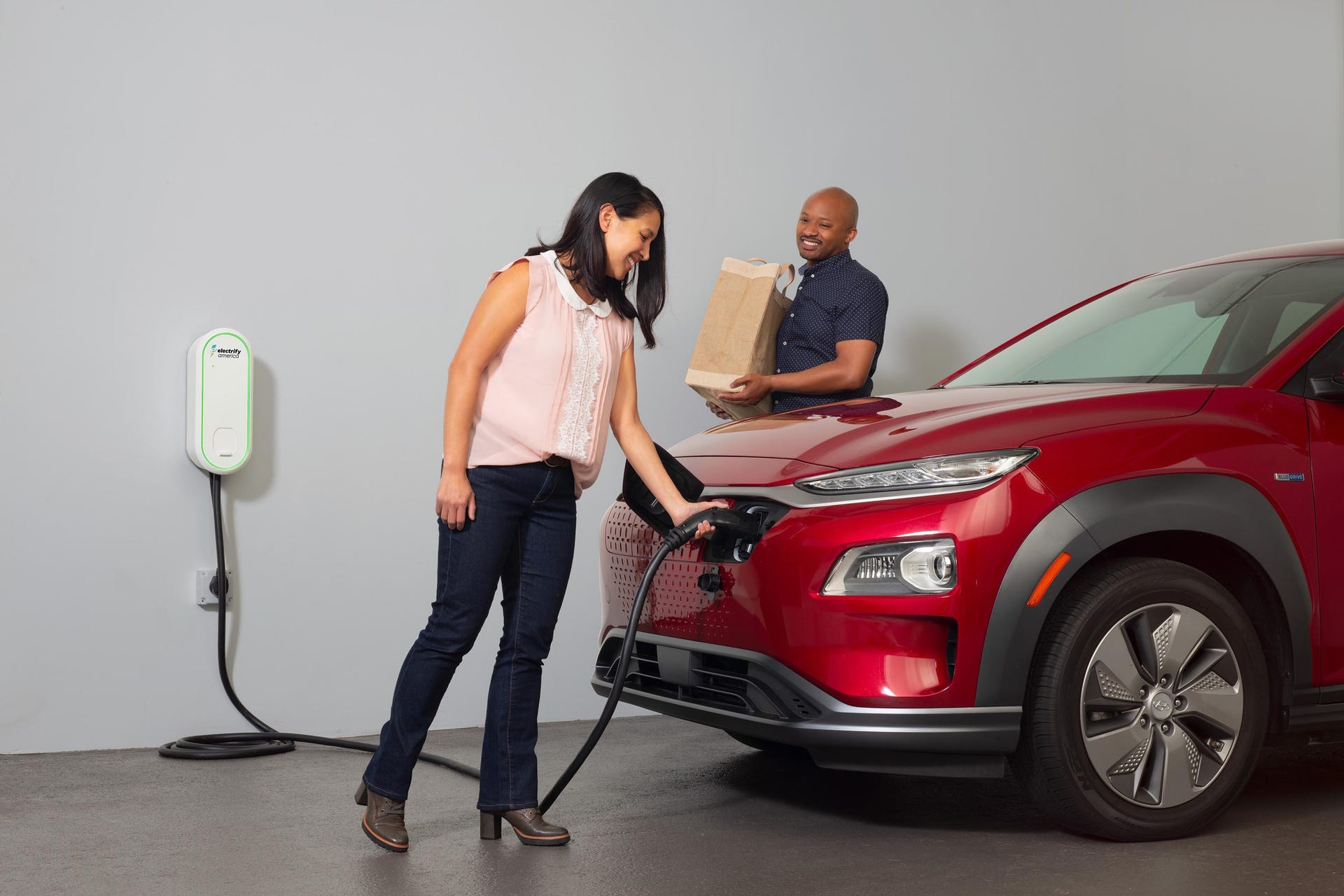
Electrify America
When it comes to charging electric vehicles, whether you are at home or on the road, how do you go about it?
Before you even begin shopping for an electric vehicle, the first thing you should consider is how you will charge it. While most EVs come with an adapter that allows you to plug into any standard 110-volt outlet (in the US), the reality is that with the size of modern EV batteries, charging at this voltage could take days to provide a decent charge. Therefore, it is essential to explore faster charging options.
If you possess a personal residence, it’s imperative to consider the installation of a Level 2 (240-volt) charger. Fortunately, the cost of such chargers is not exorbitant. However, it is necessary to engage the services of a contractor for installation, given the hazardous voltages and currents involved. There can be potential tax benefits for this installation, particularly if you concurrently opt for rooftop solar power.
If you are not a homeowner, you will need to rely on public charging networks. It is advisable to investigate the most reputable ones in the areas where you frequently drive and reside. For Tesla owners, this is relatively easy. However, for other electric vehicle owners, some research is necessary. The most popular non-proprietary networks include Electrify America, Chargepoint, and EVGo. They each have distinct applications and pricing schemes but operate on comparable principles. These charging networks provide either Level 2 charging or DC fast-charging. While the latter is notably more costly, it is also substantially faster.
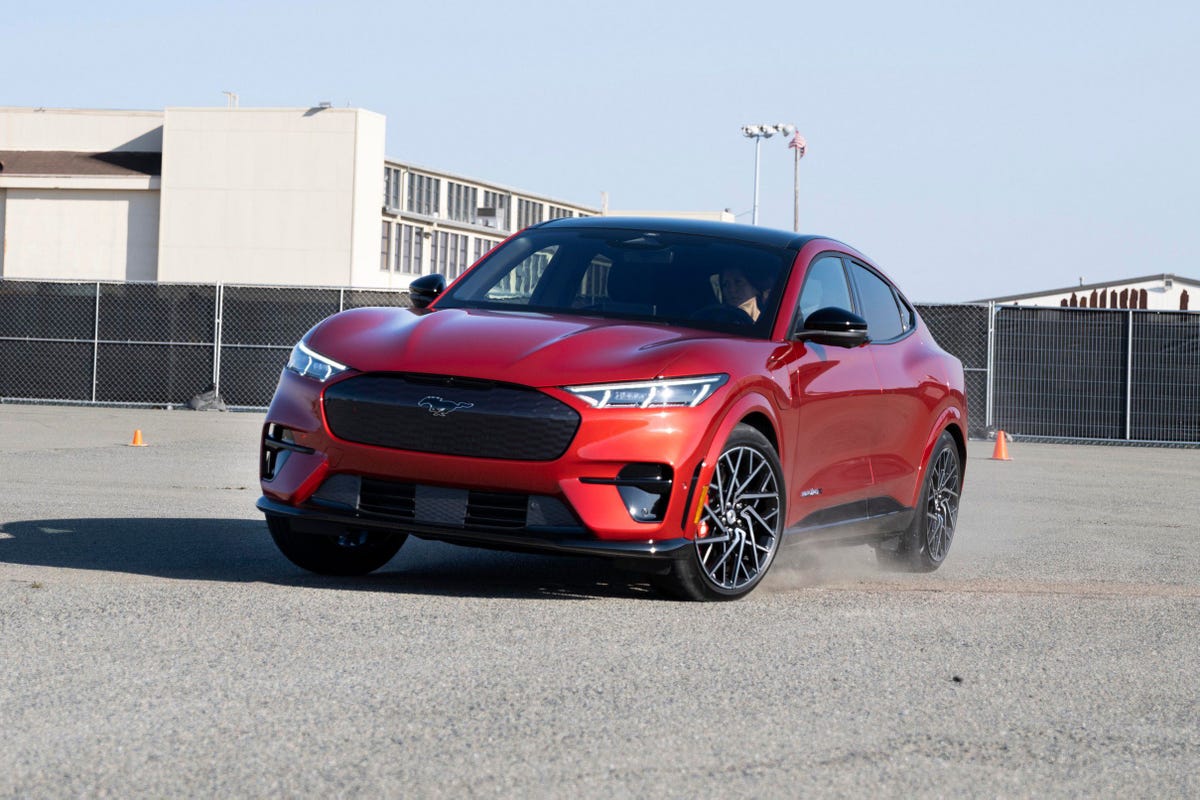
Resize Image
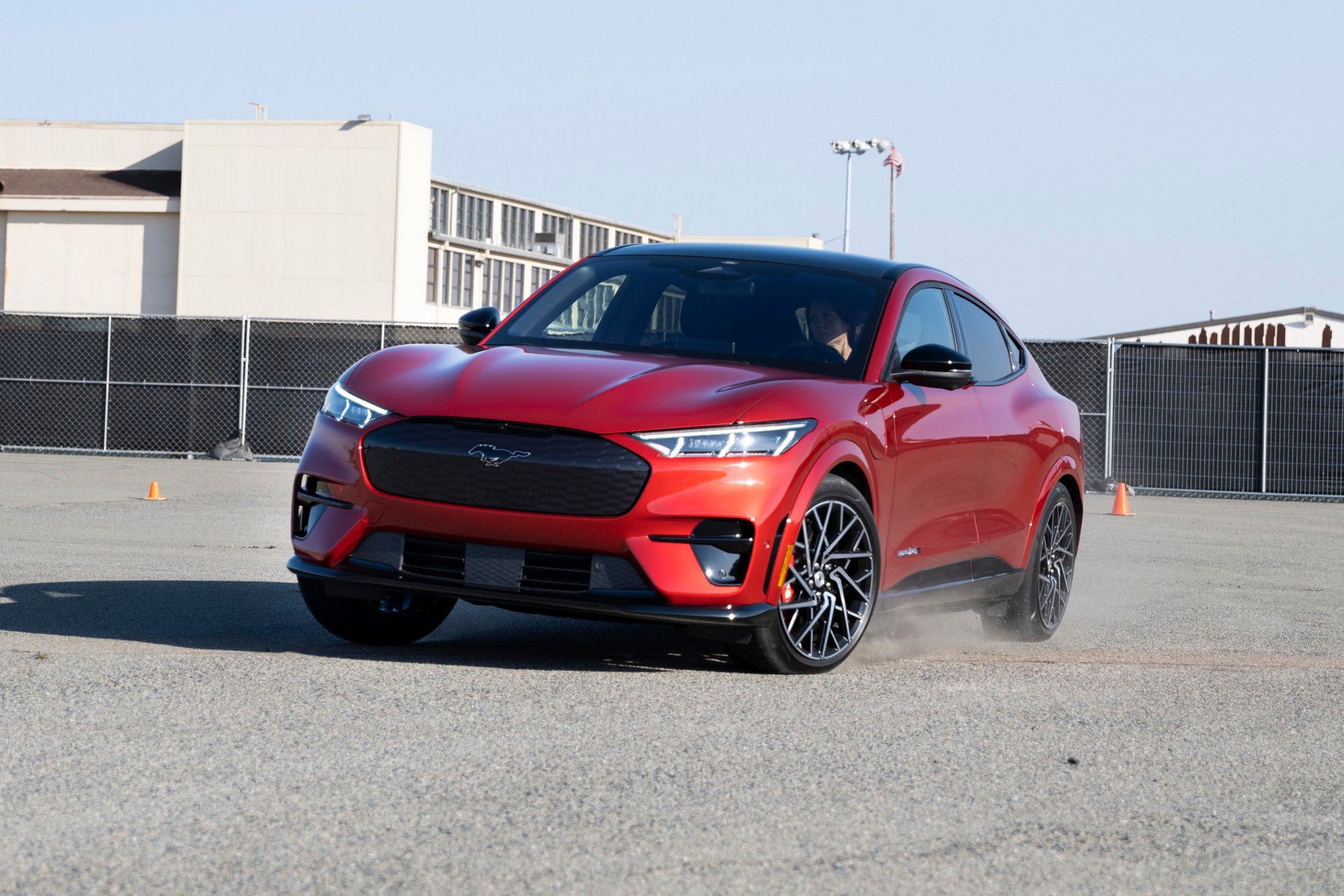
Even though EVs are low-maintenance, you still need to periodically replace consumables such as the cabin air filter, wiper blades, tires, coolant, and gear oil. While you can handle simple tasks like topping off the tire pressure or refilling washer fluid, you should opt for a vehicle from a manufacturer with a reliable service network for more complex maintenance. This may include authorized dealer service centers or Tesla’s extensive mobile service network.
What are the primary distinctions between EVs and traditional gasoline-run cars?
One of the most glaring disparities between EVs and ICE vehicles is the method and frequency of energy input. The convenience of charging every night- much like your phone- and commencing each day with a fully-fueled battery can essentially eradicate concerns about limited travel distance. Nevertheless, even the most extended-range EVs will necessitate extra planning and effort for extensive road trips or city residents who lack regular charging facilities.
For their endeavors, electric vehicles offer their operators an almost soundless operation. Without the noise produced by combustion, even reasonably priced electric cars offer a more lavish sound and sensation from the driver’s perspective. Electric motors don’t typically need complicated gearboxes and don’t have to increase revs to generate power. Their immediate torque delivery leads to more prompt performance and acceleration, particularly at lower speeds in cities.
A notable benefit of dedicated electric vehicles (EVs) is their greater interior capacity compared to similar vehicles powered by internal combustion engines (ICEs). Since EVs are designed solely for electric propulsion, there is no need to accommodate a large engine and transmission, allowing for more space for passengers and cargo within the same vehicle size. In addition, some EVs feature an extra storage area in the front of the vehicle, commonly referred to as a “frunk”.
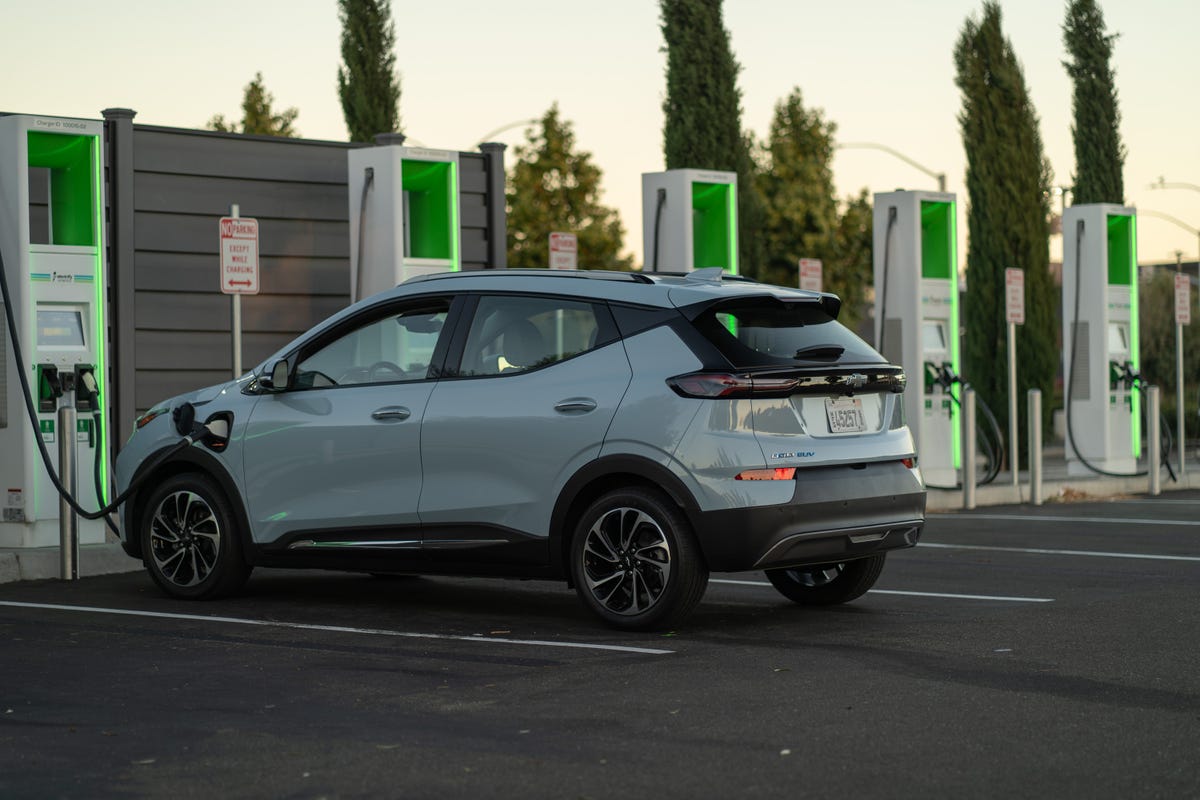
Electric vehicles (EVs) generally have a higher upfront cost, but their lower operating expenses and various incentives can ultimately lead to long-term financial savings. Antuan Goodwin from CNET asks: Are EVs usually more expensive than traditional automobiles and do they offer any tax incentives for purchasers?
If you solely factor in the upfront cost, then it is true that electric cars are more costly than gasoline cars. These vehicles are typically equipped with advanced technology and large batteries, which increase their price tag. Nevertheless, the purchase price is just a fraction of the overall picture and in many cases, electric cars end up being more affordable than their combustion engine equivalents over time.
To begin with, electric vehicles (EVs) frequently meet the requirements for tax incentives that aim to reduce the initial price tag. This can entail as much as $7,500 depending on the particular model, along with supplementary tax advantages based on specific states. Moreover, electricity is typically much cheaper than gasoline–even in states such as California with above-average per-kilowatt rates–which translates into reduced running expenses for each mile traveled, particularly when charging at one’s own residence.
An illustration would be comparing the 2023 Chevrolet Bolt EUV, priced at $28,795, to another Chevrolet model of similar size, the Trailblazer, priced at $23,395. The Bolt may seem $5,400 more expensive, but it qualifies for the $7,500 tax incentive, resulting in a net saving of $2,100. Based on current average calculations, the EPA anticipates that Bolt drivers will save $1,200 per year on charging compared to gasoline. When you add all of these to the reduced maintenance costs, the total savings during the first five years of ownership could be up to $8,100.
Naturally, the cost-effectiveness of transitioning to an electric vehicle will vary based on your driving patterns and the specific EV model that interests you. However, in general, opting for an electric vehicle over the long haul should not result in higher expenses.
Moreover, make sure to prepare yourself for discussing your electric car. You’ll undoubtedly face questions about it from acquaintances, family members, and even strangers, primarily if EVs aren’t prevalent in your area yet. While some inquiries may appear nonsensical, you’ll encounter them, and your responses could sway others to consider an EV as a feasible option.
For those who want to maintain their cars in excellent condition, here are some top picks:
Top Car Air Fresheners
Top Tire Pressure Gauges
Top Battery Maintainers
Top Car Plastic Restorers
Top Garage Heaters
Top Car Battery Chargers
Top Tire Shine Sprays and Gels
Top Fuel Injector Cleaners
Top Headlight Restoration Kits
Top Portable Tire Inflators
Top Affordable Cars
Top-rated Convertible Cars